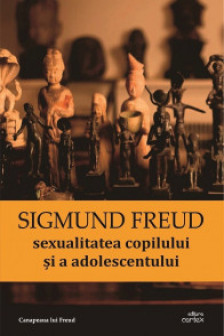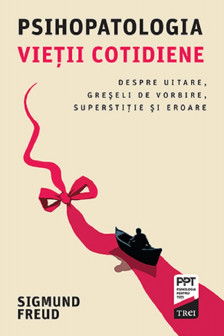Pana la livrare gratuita Chisinau 400 lei
Pana la livrare gratuita National 700 lei
Total cos : lei
A General Introduction to Psychoanalysis

Year
2012
Pages
256
Format
198 x 128 x 23
Tip
Necartonata
ISBN
9781840226867
Cod Produs
744971
Stoc limitat
140 lei
-
+
Sigmund Freud's controversial ideas have penetrated Western culture more deeply than those of any other psychologist. The 'Freudian slip', the 'Oedipus complex', 'childhood sexuality', 'libido', 'narcissism' 'penis envy', the 'castration complex', the 'id', the 'ego' and the 'superego', 'denial', 'repression', 'identification', 'projection', 'acting out', the 'pleasure principle', the 'reality principle', 'defence-mechanism' are all taken for granted in our everyday vocabulary. Psychoanalysis was never just a method of treatment, rather a vision of the human condition which has continued to fascinate and provoke long after the death of its originator. Its central hypothesis, that we live in conflict with ourselves and seek to resolve matters by turning away from reality, did not emerge from experimental science but from self-examination and the unique opportunities for observation presented by the psychoanalytic technique in particular, from the confessions produced by 'free-association' in Freud's consulting room. Written during the turmoil of the First World War, A General Introduction to Psychoanalysis was distilled from a series of lectures given at Vienna University, but had to wait for the war to end before being made available to the English speaking world. AUTHOR: Sigismund Freud (1856 - 1939), better known as Sigmund Freud, was an Austrian psychiatrist who founded the psychoanalytic school of psychology. If some of his ideas, always controversial, have now fallen out of favour, it does not diminish the impact that his thinking has had on psychology, therapy and, indeed, culture in general. His favourite book, 'The Interpretation of Dreams', remains the most significant work on the subject matter, even if some of the underlying theories have been discredited.
| Name | Contacts | Stoc |
|---|---|---|
| Magazin 418 | Chisinau , bd. Moscovei 9/5 078747418 | Stock limited |
| Librarius 445 | Chisinau , str. Arborilor 21, et 4 079366445 | Stock limited |
Livrare gratis
Livrare gratis de la 400 lei in raza orasului Chisinau.
Livrare Moldova gratis de la 700 lei in afara razei orasului Chisinau.
Suport Clienti
Suport pentru clienti pe telefon si email .
079 545 544
Plata cu cardul
Plata cu card securizat
Achitarea prin intermediul bancii












